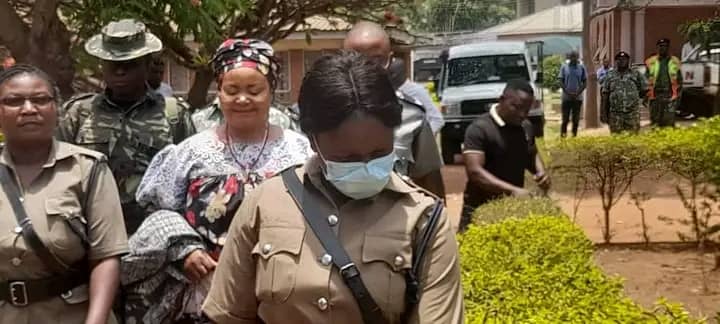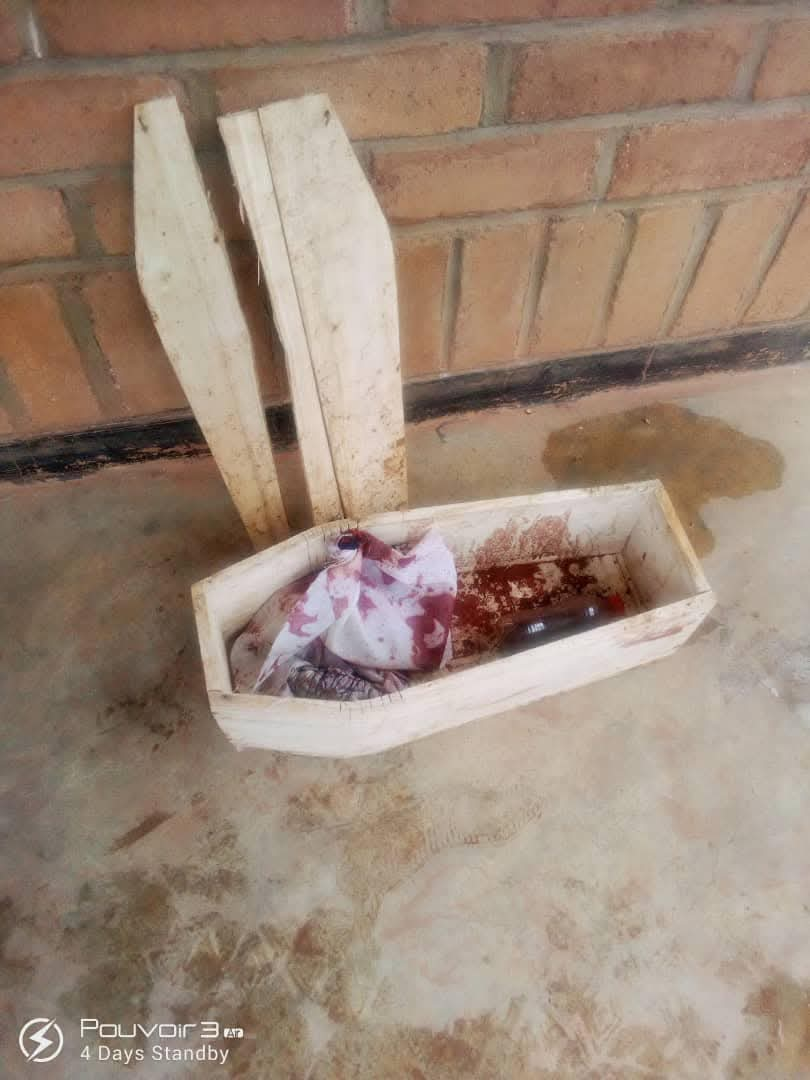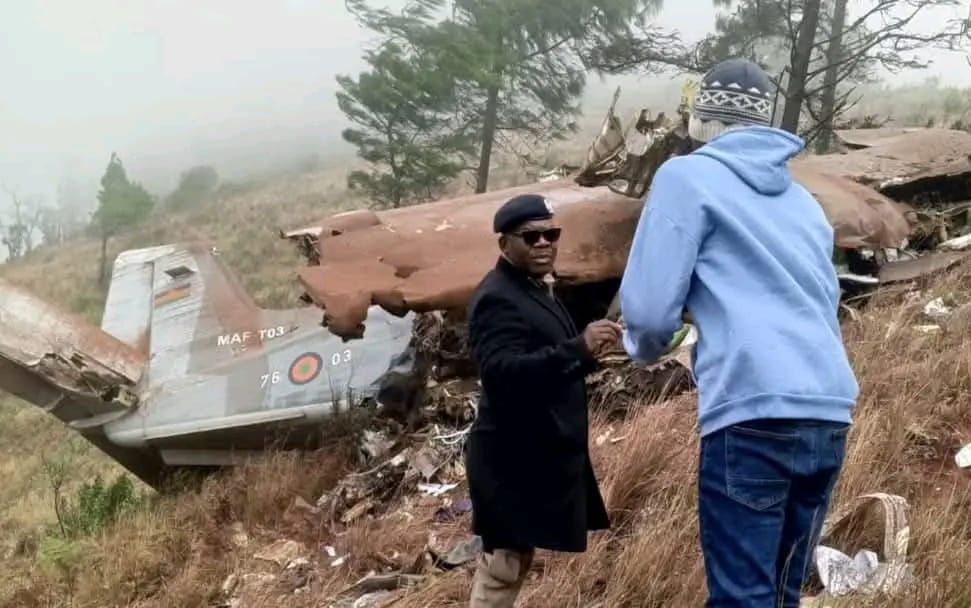Since the announcement of the removal of the fuel subsidy on May 29, 2023, petrol prices have continued to climb, heavily impacting inflation and transportation costs for both people and goods.
The continuous rise in petrol prices has pushed many Nigerians, already struggling with the high cost of living, into an even more difficult situation, especially with the increased cost of transportation.
- MHEN says immunization coverage has increased in DowaBy Vincent Gunde The Malawi Health Equity Network (MHEN) says the trends of immunization coverage in Malawi has increased from…
- It’s Friday! Satisfy Your Cravings with Chicken KhwasuIt’s finally Friday—the day you’ve been waiting for all week! After days of hard work, what better way to reward…
- Opinion: Malawi Must Wake Up — We Change Leaders, Not GovernmentBy Suleman Chitera Malawi’s political story reads like a revolving door of leaders — Kamuzu Banda, Bakili Muluzi, Bingu wa…
- Opinion: Malawi Must Wake Up — We Change Leaders, Not GovernmentBy Suleman Chitera For decades, Malawi has witnessed the rise and fall of leaders and political parties — from Kamuzu…
- Kabambe presents certificates to UTM candidates in the North ahead of September PollsBy Burnett Munthali UTM president Dalitso Kabambe on Friday led a key party event at Springs Park in Mzuzu, where…
- Kabambe Eyes Big Parliamentary Win for UTM in September PollsUTM Party leader Dalitso Kabambe has declared that his party is poised for a major victory in the upcoming September…
- Malawi High Court declares defamation law unconstitutional, sparks calls to review free speech restrictionsBy Burnett Munthali The High Court of Malawi, sitting as a Constitutional Court, has declared Section 200 of the Penal…
- Residents in Despair as Killings Continue Unabated in Lilongwe’s Area 25“We’ve got leads and we’re on top of it,” say police By Malawi Freedom Network A growing wave of brutal…
- NPC certifies Adil James Chilungo’s manifesto, aligns with national development agendaBy Jones Gadama Independent presidential candidate Adil James Chilungo has received a significant endorsement for his 2025 manifesto, with the…
- Ngoni Culture Takes Center Stage at Umuthetho FestivalBy Martha Phiri Mzimba, Malawi: The 2025 Umuthetho Festival at Hora Mountain is just around the corner, scheduled for August…
- Kaweche courts Muslim votersSheikh Arab Kainga described the meeting with Kaweche as fruitful, saying it provided an opportunity for Kaweche to outline his development agenda for Mzuzu City South East Constituency.
Just last week, the Nigerian National Petroleum Corporation (NNPC) Limited announced new petrol prices at its filling stations, raising prices from around N850 to N998 in Lagos and N1,030 in Abuja.
This unprecedented hike has hit many Nigerians hard, particularly in the transportation sector. In Lagos, public transportation fares for buses, motorcycles (okada), and tricycles have quadrupled due to the increased fuel costs.
Daily Struggles of Commuters in Lagos
Commuters who rely on public transport to get to work are finding themselves unable to afford these services.Synthesize Beautiful Scenes of Ha Giang Via Super Quality Travel Video – Flycam Nem TV
News continues after this ad
“Imagine spending N4,000 daily on transport while earning less than N 150,000 monthly,” said Isaac Adeolu, a regular commuter traveling from Abule Egba to Victoria Island, in an interview with Nairametrics.
Adeolu, who works six days a week, stated that the rising cost of petrol has made his daily commute unsustainable.
The situation is even grimmer for Lagos residents living in shanties and uncompleted buildings in Obalende on Lagos Island. Many earn their living through roadside trading or domestic work in more affluent areas like Ikoyi, Lekki, and Falomo.
News continues after this ad
“Transport costs have increased by over 200%, and the government isn’t doing anything about it. Every day, I have to trek from Obalende to Lekki to my place of work because if I include transport fare, I’ll be left with nothing,” said Evelyn Osagi, a domestic worker who earns N65,000 monthly, a little less than the new minimum wage.
Evelyn explained that she would spend at least N30,000 a month on transport if she had to pay for the rising fares caused by the petrol price hike.
Nairametrics found that many shanty dwellers are walking long distances to work daily because their modest incomes are no longer sufficient to cover the cost of increased transportation fares.
“We can no longer afford transport to go work,” a shanty dweller, who said she washes clothes for a living in high-class environment of Lekki, said.
E-Ride Drivers Share Their Struggles
The rise in petrol prices is also affecting commercial drivers, particularly those driving e-hailing vehicles.
Nairametrics has observed a growing trend where e-hailing drivers using platforms like Uber, In-Drive, and Bolt are now renegotiating fares with passengers directly, outside the app’s fare system.
“What can we do? The price the apps offer us can’t even buy fuel, so we have no choice but to renegotiate with our customers,” said Chukwuma Patrick, an In-Drive driver, who added that he had spent N40,000 on fuel for just two rides, barely making N25,000 in revenue. He noted that his fuel gauge was already showing red by the end of his second trip.
Before the subsidy removal, N40,000 worth of petrol would have been about 210 litres, enough to fill the tanks of three cars. Now, that same amount of fuel barely fills one car’s tank.
“Our customers understand that things are expensive now. Most of them know how much we spend on petrol daily, so when we renegotiate the price, they don’t really complain,” said Idris, an Uber driver, who mentioned that passengers now expect to pay more than the app’s listed fare due to the drivers’ struggles.
No Respite in Sight for Commuters
Despite the high cost of petrol and skyrocketing transportation fares, there appears to be no immediate relief for commuters. Energy expert Tolu Ajisafe believes that the removal of the subsidy, combined with the Nigerian National Petroleum Corporation (NNPC) stepping back from its role as the middleman between Dangote Refinery and domestic marketers, will lead to further price hikes.
“I don’t think we’ve seen the end of these price increases. The federal government seems uninterested in regulating prices anymore. NNPC is burdened with debts and foreign obligations and isn’t willing to absorb the cost,” said Ajisafe.
Ajisafe suggested that the current price of petrol is still somewhat subsidized by the government and warned that further devaluation of the naira could push petrol prices even higher. “If the exchange rate fluctuates again, petrol prices will increase. The idea that petrol is less than a dollar per litre won’t hold for long.”
For many Nigerians, the new reality of a “subsidy is gone” regime is becoming increasingly hard to bear, and they are bracing for more inflationary pressures as the situation worsens





